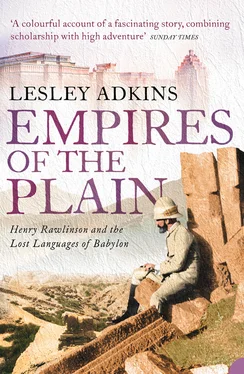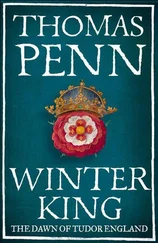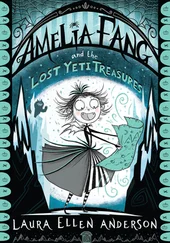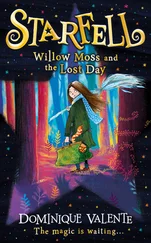When Henry was born, he was the seventh, but not the last, of Abram’s children – he and his older brother Abram and sisters Anna, Eudocia, Maria, Georgiana and Caroline were soon joined by four more brothers – Edward (who died only a few months old), George, Richard and, three months after the Battle of Waterloo, another Edward. At a time when a farm labourer was earning less than £30 per year, the income of the Rawlinson family in good years was around £2,000, partly from property Abram had inherited in the West Indies, but primarily from the farm. The ending of the Napoleonic Wars in June 1815, though, witnessed a period of severe agricultural depression in Britain that affected income from the land, and freak weather the following year led to harvest failures, starvation, unemployment, bankruptcies, increased emigration, demonstrations and riots. Although Abram sent his eldest son to Rugby School, he was forced to economize on the education of the other boys during this period of financial uncertainty, and so up to the age of eleven Henry attended a day school at Chadlington and was also educated at home by his mother, learning Latin, English grammar and arithmetic, supplemented by lessons from his sisters’ governesses.
Not only did Henry spend his early years in rural Chadlington, but also in the contrasting environment of the city of Bristol. For over five years, from the time the Royal Scots Greys marched to Waterloo, he often lived with his maternal aunt Anna and her husband Richard Smith, in their elegant terrace house at 38 (now 80) Park Street, and for a short while attended a day school in the city. Richard Smith was a surgeon to the Bristol Royal Infirmary, and he successfully treated his nephew’s serious eye condition that had threatened his vision, so that in the end only his left eye was partially impaired. When Henry was seventeen years old, he was told a story about ‘good Aunt Smith’s marriage’, that she was engaged to Henry Pelly, but he went to sea to make his fortune, and on returning discovered that Anna, like Henry’s own mother, had inherited a fortune. He was too proud to approach her, and because she was annoyed at being ignored, Anna eloped with another admirer, Richard Smith. In view of Henry’s sight being saved, this was a happy outcome, and he himself noted: ‘Who that has seen their perfect content and happiness will ever believe in the inevitable miseries of an elopement.’ 3
At Bristol, Henry came under the influence of his aunt’s wide literary circle, including Hannah More, a poet and playwright who had achieved great success in London and whose hugely popular religious tracts aimed at the reform of conditions for the poor had led to the founding of the Religious Tract Society in 1799. She was then living at Wrington in Somerset, to the south-west of Bristol, where Henry’s maternal grandmother also had her home. From 1813 his aunt’s closest companion was Mrs Mary Anne Schimmelpenninck, an author of popular religious and educational works and a campaigner for the abolition of slavery. She often talked to Henry, who recorded that she ‘took a great interest and taught me scraps of Hebrew’, 4 which she herself was studying with his aunt.
In January 1821, eight months after the death of his eleven-year-old sister Caroline, Henry was sent to a boarding school at Wrington. He later condemned his two-and-a-half years there as of limited use, because he ‘got well grounded in Latin and Greek. Also in General History but learned no Mathematics’. 5 Much more influential for him must have been spending nearly every Sunday in the company of Hannah More and her supporters. A few weeks after starting this school, just before Easter, Henry undoubtedly heard about his uncle’s involvement with John Horwood, hanged at Bristol’s New Gaol on Friday 13 April for murdering a woman who had rejected him. By order of the court, Horwood’s body was released to Richard Smith at the Bristol Royal Infirmary for dissection, which was carried out before a large audience and was followed by several lectures. Smith had an account of the trial, execution and dissection bound into a book that was covered by Horwood’s own tanned skin – a macabre volume now held in the Bristol Record Office.
Henry’s older sister Anna Maria died in 1823, and in August the following year he was moved to the much larger Great Ealing School, then considered to be ‘the best private school in England’. 6 Although now swamped by the suburban spread of London, the village of Ealing was predominantly agricultural, dotted with fashionable country houses. Henry judged his two-and-a-half years at this school to have been crucial, because for the first time he developed a desire to excel in academic studies rather than just in sports. He acquired such a good command of Classical languages that by the time he left he was first in Greek and second in Latin within the entire school, a substantial accomplishment considering his previous piecemeal education. Even so, he had no intention of going to university, as he had long cherished an ambition to seek adventure by entering the army; apart from his nickname of ‘Beagle’, from an early age his brothers and sisters called him ‘the General’. 7
Although diligent in his school work, Henry was a strong character, not above breaking the rules when it suited him. On one occasion he was caught with another boy, Frank Turner, after they had walked to and from London to see an opera. The penalty for such a premeditated breach of the school’s strict discipline could be harsh – flogging or expulsion. Instead they were set the task of learning by heart, in the original Latin, all 476 lines of the Ars Poetica , written by the Roman poet Horace around 19 BC in the form of a letter giving views on the nature of poetry. After a fortnight, Henry completed the task and recited the lengthy poem without a flaw, but the other boy failed and was expelled.
As might be expected from a family background so steeped in field sports, Henry had a natural talent for all the games played at the school: prisoners’ base, cricket, football and fives. He was exceptionally gifted at fives, a rough ball game that required great physical endurance, using the hands rather than bats or rackets. He spent the school holidays at Chadlington entirely immersed in the outdoor pursuits of hunting, shooting and fishing, and at times was invited by Lord Normanton to attend shooting parties with his father in the woods east of Chadlington that formed part of the Ditchley Park estate. On his first occasion Henry shot and killed every pheasant before Lord Normanton had taken aim, and so he had to be advised of the correct etiquette. He then held back, only to prove himself the best shot after Lord Normanton had fired – in the sporting slang of the time, ‘wiping his lordship’s eye’. 8
In December 1825, Henry’s older sister Eudocia died at Bristol at the age of twenty-three. Five months later, when he was sixteen years old, Henry left school with a nomination to a cadetship in the East India Company, a position he owed to the influence of his mother’s half-brother, although his formal nominator was William Taylor Money, one of the Company’s directors. Henry was now 6 feet tall (6 inches above the average height at the time) and was ‘broad-chested, strong limbed, with excellent thews and sinews, and at the same time with a steady head, a clear sight, and a nerve that few of his co-mates equalled’. 9 In fact, with all the qualities of a young soldier.
For the sons of gentry, entering the British army as an officer meant buying a commission and having a private income to supplement the low pay, but this burden could be avoided by entering the army of the East India Company as a cadet and rising through the ranks by promotion – which Henry Rawlinson proposed to do. Granted a charter on the last day of December 1600 by Queen Elizabeth I, the East India Company (more correctly ‘The Governor and Company of Merchants of London, Trading into the East Indies’) had exclusive rights to trade with the ‘East Indies’, a term covering the entire south-east expanse of Asia. Initially, the Company competed with the Dutch for the Indonesian spice trade, but after the ‘Massacre of Amboyna’ in 1623 when Company merchants and their servants were tortured and executed by the Dutch, the Company turned to the subcontinent of India.
Читать дальше












